
Olivia Broadfield: “I got to sit at home while TV shows went worldwide and people all over got to hear my songs.” Photo: Lee Glasgow
Writing hit songs for shows like ‘The Split’ has given this artist a unique insight into making music for television
One of the joys of being a songwriter is the many different paths you can follow. While some artists thrive in the traditional cycle of writing, recording, and touring, others find unique ways to reach audiences. Olivia Broadfield has done just that, building a career writing for others – collaborating with talents like Billie Marten and Asha Banks – and, most notably, composing for television, utilising her ability to craft songs that heighten on-screen emotion.
Broadfield’s music has appeared in shows like Grey’s Anatomy, The Vampire Diaries, and Melrose Place, but it was the BBC’s The Split that truly cemented her reputation. She has written a total of 13 original songs for the show, including Faultline, which closed the series finale, and Quicksand, the lead track from The Split: Barcelona. Her ability to capture the complexities of midlife – love, loss, and reinvention – has resonated with an audience often overlooked in mainstream music, and proved a fascinating basis for our recent interview…
More on writing for film and TV
When did you make the decision that the cycle of writing, recording, releasing and touring wasn’t necessarily for you?
“It’s that difficult thing: if you write songs and can kind of sing them, but you’re not a natural performer, what do you do with that? I always loved the writing, I loved the singing a little bit, I definitely didn’t love the performance – I would do it, but if you haven’t got that passion for it… I don’t know how you would do that touring without just destroying your soul.
“I made that decision very early on that that’s not what I would do, hence why I got into the TV world. I thought it would do the touring for me, and it did. I got to sit at home while TV shows went worldwide and people all over got to hear my songs.”
How did you make that happen?
“It was in the days of Myspace and I would add TV editors. I quite quickly realised that music supervisors sounded like they were the people who chose the music, but ultimately the editors, or the directors, were the people that, if they said, ‘We want this song in,’ that would be the song that went in. I started adding editors, and I think I got away with being some sort of whimsical British girl who was contacting all these people in L.A.
“I don’t quite know how I did it, but that is legitimately the way that I got my songs in Grey’s Anatomy and The Vampire Diaries, and all these shows – befriending TV editors. It was a bit more of a backdoor way in, but it seemed to be a formula that worked solidly for several years, and then The Split happened, again, that was through knowing the editor.”
Were you approaching them with songs that you already had, or were you saying you could write what they wanted?
“No, in America, it was, ‘These are some songs that I have,’ and The Split was the point of difference. They’d had a song that I’d originally written, that my friend had slid in without wishing to be like, ‘This is my friend and I’m putting it in the TV show.’ We stayed quiet that he knew me, and he put this old song of mine in.
“Then he asked me to do a cover for another episode. He was like, ‘Can you try this cover for me?’ and apparently it made the director cry. That’s when he was like, ‘I actually know this girl.’ And then she said, ‘Do you think she would write songs for every episode?’ I think it was quite an on-the-hoof kind of decision. From that point, I was writing to picture and script. But no, in America, it’d been, ‘Here’s a song. Do you want it?’ So, yeah, it’s been interesting, doing it both ways around.
What do you think it was about those early songs that appealed to those editors and TV shows?
“I don’t ever proclaim to be the greatest singer or the greatest songwriter. I think it’s how can you make yourself memorable. Because, ultimately, people like working with people. I think it was this kind of very random way that I just reached out to them on Myspace or Facebook and was like, ‘Hello, I’m British, aren’t I cute? Do you want to use my songs in your big American TV show?’ And they, for some ungodly reason, were like, ‘Okay.’ I don’t know. Was it that I was British and that they were probably being inundated by Americans? I have no idea, to be honest
“Maybe there’s something about my voice, which is very whispery and unobtrusive, that works with TV, because you’ve got to own your role when you’re doing music for TV, which is: here’s all the dialogue, and here’s all the stuff, and here’s you. If you’ve got a powerhouse vocal, that’s not gonna work so well with dialogue, same if you’re doing crazy stuff. I was writing very emotional, ballad-y, traditional singer-songwriter stuff and I think it just worked for TV.”

Olivia Broadfield: “Everyone likes a sad song because everyone likes to have permission to be sad.” Photo: Lee Glasgow
Please could you talk us through the process of writing to a script or writing to a picture?
“This time around, when I did The Split special at Christmas, I got to speak to Abi Morgan, who’s the writer. Previously, I’d worked very closely with the director, who will tell you, for them, what the key narratives are, or the key storylines. Then you get the script, so you’re starting to understand some of the dialogue and the characters, and I have to say, they kind of become your muse.
“When you’re writing for character, you’ve got the story presented to you, so it becomes a lot easier to write for that because you’ve already got the narrative. I don’t know why I like it so much. It’s a very different part of your songwriting brain to when you’re co-writing with artists. I enjoy having that variety. Whether it’s just lucky, it really has just been that I’ve written a song and said, ‘Does that work?’ And they say, ‘Yes, that works.’ There have been a couple of instances where I’m like, ‘Does this work?’ And they’re like, ‘Not quite yet,’ and I have a go again.”
How about writing to picture?
“I really love writing to picture, because you get to craft it more and choreograph it more. Particularly in series three of The Split, which was meant to be the last one, there was this bit where the character turns to camera and breaks the fourth wall and I could time that with the music. You can try and do that with a piece that you take off the shelf, but it always sounds a bit hammy and a bit chopped up compared with when you authentically score songs to picture.
“TV composers are relentlessly scoring to picture for the underscore stuff, and then songs… human voice has a real capacity to engage with the audience. It makes perfect sense to me that you would want the bits with human voice that equally have that beautiful kind of symbiosis and choreography with the picture. I don’t know why it doesn’t happen more, to be honest, that you hire a songwriter into a TV show and ask them to write songs for it, but it doesn’t happen that often.”
Is there a difference between if you’re writing a score and if you’re writing a song?
“When I say ‘score’, that’s my terminology. I don’t proclaim to be somebody that orchestrally scores to picture. What I do is always intimate piano stuff. I’ve done commercial work and stuff like that, which is not vocal, but there’s not that much difference. It’s just what’s doing the topline melody, a voice or a piano. I don’t think there’s that much difference as to how you’d approach it.”
Are you ever pulling lyrics directly from the script?
“Sometimes I have pulled directly from script, just a word. If I feel there’s a word that I remember, there was a word “birdsong” and I was like, ‘Okay, that feels like quite a key word,’ but actually, they didn’t like it if I pull too directly from the script. Again, I think that felt a bit clichéd.
“I get the feeling of it, and then, once you see the picture and you can feel the pacing and all that kind of thing, you get a lot of clues as to what song you have to write. So no, I don’t pull words from the script. That doesn’t work. I guess it’s more of a mood really, that’s what you’re trying to get. You never have to match so closely to the storyline, you just have to capture a mood.”
Are you picturing someone viewing the show in the same way some songwriters might picture a certain person listening to the song?
“I think the reason why I was such a good match with The Split was, I’m a female in my 40s, and the show is about women pretty much in their 40s. So that is going to appeal to the demographic at home of women in their 40s and 50s. When you look at my Spotify demographics, I’m like 90 percent women and 75 percent people over the age of 35.
“Then, I think it was just glorious permission to write what’s important to me. When I’m writing with artists who are often half my age, I can’t necessarily relate my experience. I can help lyrically, help convey emotion, help melodically… I can do all that, but you shelve yourself and you go, ‘This is not about my feelings here,’ and put those to one side.
“With The Split, it was that world of being a 40-something woman and having got loads of stuff wrong in life and trying again, relentlessly re-inventing yourself, trying to grow as a person and all this stuff we’re doing all the time. I guess I was just picturing myself. What would I want to hear somebody saying, okay, great, say that then. It wasn’t a hard task.”

Olivia Broadfield: “I’m an old soul who likes the craft of songwriting.” Photo: Lee Glasgow
It must then be a special feeling when those songs have connected with so many people, and resonated with that audience?
“I don’t know if it sounds twee and trite, but the reason that I write songs for myself, the reason that I enjoy writing with others, it is super emotional for me, the power that songs have. I was talking to somebody a bit ago, and I said that everyone likes a sad song because everyone likes to have permission to be sad. We live in a world where people find it difficult to sit down and feel a bit vulnerable and emotional. If you can blame it on a song, ‘Oh God, that song really got to me,’ it lets people feel that.
“I had a letter from a lady who said ‘My husband got diagnosed with cancer, and quite quickly passed. Listening to the music that you’ve written for the show is really helping me.’ One of the storylines was about someone’s husband dying, and the songs were about grief. I’m at home writing these songs for this TV show and you don’t necessarily picture the woman in her 50s or 60s at home grieving, crying to your music and it being part of her healing process; that’s just too many dominoes down the road. But that, for me, is way better than any other sort of validation. That direct human validation is, I think, why I do this.”
Yet in some ways, it seems counterintuitive because the nature of your music being on TV is that a lot of people will know your songs without knowing who you are, so perhaps that direct relationship between artist and audience isn’t there?
“When I was signed in America, when I was 28, it was difficult for them to process, ‘No, I’m not going to come to America and tour. That’s not who I am.’ Sometimes it felt like that would be a block, but actually, I think it’s given me focus because to tour… the more conventional artists’ lives are so time-consuming.
“I already see with some of the artists that I work with, the windows for creativity and the actual songwriting time becomes smaller and smaller, and you’re like, ‘So you’re an artist 52 weeks of the year, and we’ve got to try and cram all your songwriting for the next EP into this one week.’ I absolutely get it, but I’m an old soul who likes the craft of songwriting. I’m like, ‘Why are we not sitting in a barn overlooking fields for a few months, trying to write songs?’ That’s the world that I’d be happier in. I do feel very fortunate that I’ve managed to actually have people know my name or at least know my voice or my songs.”
At this point, is it word of mouth/word of song that one job leads to the next?
“It’s always been difficult because I’m kind of half artist, half songwriter, and I hope the two complement each other. Some of the artists that I work with, they’re like, ‘Oh my God, my mum loves The Split.’ And I’m like, ‘Of course, it’s your mum that loves The Split.’ So they do kind of work with each other.
“I’ve been working with an artist called Asha Banks for about two years now. She came to me when she was 19, and the reason I loved that is because it really did feel like we got to build that songwriting relationship. It wasn’t just somebody that’s come to me once, we’ve written one song, and they’ve gone back out again. At this point, we have written like 20 songs.
“You get to really shape that partnership with an artist, and she’s also an actress, and she’s got this film [My Fault: London] that’s currently No. 1 on Amazon, and we’ve written something for the credits [Feel The Rush]. She posted a video to TikTok of her dancing in the mirror to that song and it’s already had millions of views. That’s nice, because then I’ve had a hand in something that will go much further, because she is going to be the person that tours and puts herself out there while I sit at home and have a hot cross bun.
“I’m happy to do this artist thing, and I’m happy if more jobs like The Split come up. I will always write for me, but there is a joy in writing for younger artists who have got that massive enthusiasm to get their music out there. You’re like, ‘Oh yeah, I could be part of that. That would be fun.’”

Olivia Broadfield: “Nobody cares enough about you to come and find your music.” Photo: Lee Glasgow
We’ve got a couple of questions from our members that I wanted to put to you. The first one is, how can songwriters best access opportunities to write for TV and film in 2025?
“Part of me thinks the way that I did it 17 years ago is still relevant. There is so much good music out there. There are so many good songwriters and singers out there. How will you be the point of difference? Sometimes for me, that was that I would reach out to people and go, ‘I rescue squirrels. I’m a decent human being. Why wouldn’t you listen to my music? You’re a terrible person if you don’t.’ I’d use crappy humour to be memorable.
“You have to find what is your point of difference. Mine is that my songs are quite emotional. They make people cry. I try and make people feel stuff. That’s going to be the thing that I’m going to push. I think it’s still valid to reach out to editors, directors, and music supervisors, but you’ve got to be so careful with how you do that. You’ve got to think about how will you stand out. Because the music is all good. Once you get to that point, there’s so much good music. There’s even so much good library music.
“You have to really know who it is you are. It’s what I said, people want to work with people. With The Split, it became like a family. Music is so creative and emotional, if you can build the relationships with people, then they want to help you. Of course, the music has to be good. But like I said, if you’re at that point of wanting to be doing this for a career, you’ve got to hope that your music is good enough.”
When you talk about pushing your point of difference, do you mean in terms of being very good at introducing yourself and knowing what your strengths are?
“I did music at uni. When I left uni I was like, ‘I cannot get a real job. If I get a real job, that’s it. My creativity is going to die.’ So, I made sure that I lived in the music world. I used to put on little acoustic nights and tapped into the student population. We used to run these music nights, and we used to have raffles, candles, and sweets, and make it a fun night.
“We put on local talent, sometimes people would come from outside town, and I witnessed how much in the local scene people just expected to get discovered. Like, ‘If we just keep doing our thing and we keep playing that bar and we pack it out with our friends, we will get discovered.’ That was a very old-school mentality, pre-social media.
“When I say push yourself, someone once called me “politely aggressive” or something – that kind of odd oxymoron that is probably me. You have to put yourself out there. Nobody cares enough about you to come and find your music. Pick the right home for it. If you want to get into TV and sync, make sure that you’re pitching to the right shows.”
How can you do that?
“Watch TV. Or there are websites like Tunefind that have all the songs that are on the TV shows. Go and find something that’s a bit like you, find something where you’re like, ‘Okay, that’s the world that they’re interested in.’ Pitch to that TV show. Don’t waste your time, don’t waste other people’s time, make sure that you’re at least a good fit.
“It’s the balance of being confident that what you do is good enough, but not being an arrogant, hateful person that nobody wants to help out. I believe that humans, deep down, want to help other humans out. I think that still exists in any world, no matter how much we might think it’s a cutthroat industry. I still believe that people enjoy seeing other people’s success, but they’re not going to be happy if you’re a total idiot. It’s a fine line of, ‘I’m confident, but I don’t think I deserve this more than anybody else.’”
Lastly, the other question from our member is: what lyrical themes do you get the most success with?
“It refers back to what I said earlier, when I said people want a sad song because they want permission to be sad. As human beings, we find it difficult to sit with the uncomfortable emotions, so lyrically, if it’s a theme that people might struggle with themselves, that’s always going to resonate. Whether it’s a big loss or those moments of, ‘Oh man, we nearly had that then.’
Of course, if we charted what percentage of songs are about love in some way, shape or form, it’s going to be a lot. I think it’s those little yearning, aching moments that bother us as humans, and we hold on to them. Lyrically, they’re the things that people want to hear. People always want to hear a little bit about pain.
“When I try and think of a song that encapsulates that… Kate Bush, she killed me with the combination of the melody and the simplicity of a lyric. And I would religiously cry to the same Kate Bush songs. The one she does with Peter Gabriel [Don’t Give Up], when she sings, ‘Don’t give up,’ in the way that she sings it, it’s so simple but you know that a line like that is going to mean so much to so many people.
“I was with Asha a couple of weeks ago, and we were writing this song where, literally, we almost took it in turns to cry, and it was our own bloody song. There was just something about the simplicity of the lyric that got to us. And I think it’s that even your own songs, you should be able to sit apart from them and go, ‘Is that affecting me in some way?’ It’s difficult because you’re so close to it, but how can you touch people?”


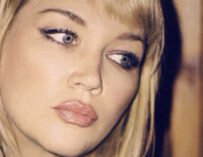
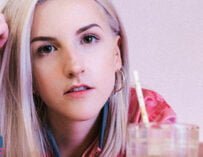
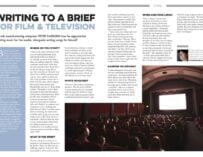



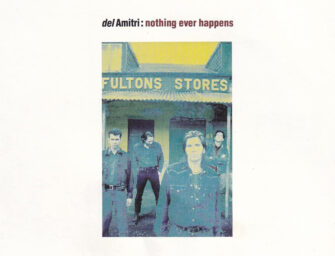

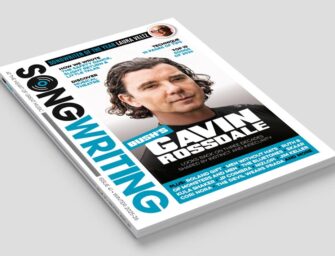
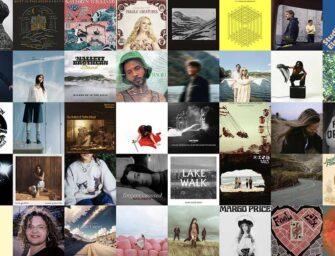
























Related Articles